Posted on March 15th, 2010 by ASEE
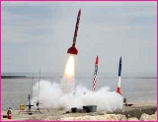 The Great Lakes Spaceport Education Foundation, Inc.’s Rockets for Schools program allows students to experience the excitement of building-high power rockets, coordinating a rocket launch and working hands-on with industry professionals. This program is open to students of varied socio-economic backgrounds in grades 6-12 from a five state area in the Midwest. Rockets for Schools 2010 is scheduled for Friday, May 7th and Saturday, May 8th in Sheboygan, Wisconsin.
The Great Lakes Spaceport Education Foundation, Inc.’s Rockets for Schools program allows students to experience the excitement of building-high power rockets, coordinating a rocket launch and working hands-on with industry professionals. This program is open to students of varied socio-economic backgrounds in grades 6-12 from a five state area in the Midwest. Rockets for Schools 2010 is scheduled for Friday, May 7th and Saturday, May 8th in Sheboygan, Wisconsin.
Read More
Filed under: K-12 Outreach Programs, Web Resources | Comments Off on Web Resources: Rockets for Schools
Tags: Aerodynamics, Aeronautics, Aerospace, Events, Grades 6-8, Grades 9-12, NASA, Programs for Students, Space, Web Resources
Posted on March 15th, 2010 by ASEE
 NASA eClips™ are short educational video segments meant to inspire and engage students, helping them see real world connections. New video segments are produced weekly exploring current applications of science, technology, engineering and mathematics, or STEM, topics. The programs are produced for targeted audiences: K-5, 6-8, 9-12 and the general public.
NASA eClips™ are short educational video segments meant to inspire and engage students, helping them see real world connections. New video segments are produced weekly exploring current applications of science, technology, engineering and mathematics, or STEM, topics. The programs are produced for targeted audiences: K-5, 6-8, 9-12 and the general public.
Read More
Filed under: Web Resources | Comments Off on Videos: NASA eClips
Tags: Aerospace, Grades 6-8, Grades 9-12, Grades K-5, NASA, Videos
Posted on March 15th, 2010 by ASEE
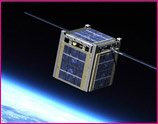 “Space Science Mentor,” an article from the March 2009 issue of Prism magazine, profiles a Kentucky professor who involves his undergraduates in satellite launches. Hands-on research is often seen as a good way to engage undergraduates in science and engineering. But at Morehead State University’s ambitious space science center, it’s no mere exercise. As the center joins in preparing suborbital vehicles and a satellite for launch, sophomores and even second-semester freshmen help design and build payloads and operate ground-to-space communications.
“Space Science Mentor,” an article from the March 2009 issue of Prism magazine, profiles a Kentucky professor who involves his undergraduates in satellite launches. Hands-on research is often seen as a good way to engage undergraduates in science and engineering. But at Morehead State University’s ambitious space science center, it’s no mere exercise. As the center joins in preparing suborbital vehicles and a satellite for launch, sophomores and even second-semester freshmen help design and build payloads and operate ground-to-space communications.
Read More
Filed under: Special Features | Comments Off on Feature: Space Science Mentor
Tags: Aerospace, Astronomy, CubeSat, NASA, Satellites
Posted on March 15th, 2010 by ASEE
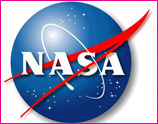
The NASA educators page includes a wealth of teaching materials, lesson plans, and activities developed by teachers, university educators, and NASA engineers and scientists.
Read More
Filed under: Web Resources | Comments Off on Website: Lesson Plans from NASA
Tags: Aerospace, Lesson Plans, NASA
Posted on February 1st, 2010 by ASEE
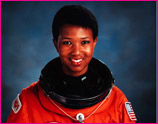
The African American History Program online database of the National Academy of Sciences includes African American citizens of the United States who have made significant contributions in science, engineering, or medicine.
Read More
Filed under: Web Resources | Comments Off on Web Resource: African-American Scientists and Engineers
Tags: African-American scientists, NASA, Web Resources
Posted on December 24th, 2009 by ASEE
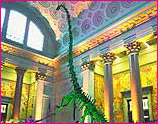
In this 3-day professional development institute at the American Museum of Natural History in New York City, middle and high school teachers engage with a global gravity data set to understand how water distribution across the globe is affected by climate change, and learn how NASA scientists gather and interpret data. Dates: Feb. 17, 18, 19, 2010; 9 a.m. to 4 p.m. Cost: Free. Application deadline: Jan. 12.
Read More
Filed under: For Teachers, K-12 Outreach Programs, Web Resources | Comments Off on Teacher Program: Space Institute, NYC, Feb. 17-19, 2010
Tags: NASA, Professional Development, Programs for Teachers, Satellite, Space
Posted on November 14th, 2009 by ASEE
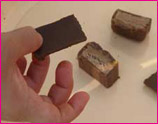 The edible “rocks” lesson helps students grades K-8 learn the importance of observation, teamwork, and communication skills. Students draw and describe the food/meteors, then pair their observations with short descriptions in a geologic “Field Note” style.
The edible “rocks” lesson helps students grades K-8 learn the importance of observation, teamwork, and communication skills. Students draw and describe the food/meteors, then pair their observations with short descriptions in a geologic “Field Note” style.
Read More
Filed under: Grades 6-8, Grades K-5, Lesson Plans | Comments Off on Lesson: Edible Rocks, Munchy Meteorites
Tags: Aerospace, Grades 6-8, Grades K-5, Lesson Plans, NASA
Posted on November 14th, 2009 by ASEE

When NASA’s space shuttle Atlantis takes off for the International Space Station, a University of Colorado at Bolder butterfly experiment will be aboard, monitored from Earth by thousands of K-12 students.
Read More
Filed under: Grades 6-8, Grades 9-12, Grades K-5, K-12 Education News, K-12 Outreach Programs | Comments Off on Fluttering in Space: The Butterfly Project
Tags: Aeronautics, Aerospace, Biology, NASA, Space
Posted on November 3rd, 2009 by ASEE
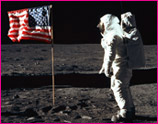 Participants of this free, one-day online conference join in interactive discussions on the Apollo program and its historical impact. Teachers are invited to explore ways to teach the use of primary source materials. All sessions will be archived and available for future replay.
Participants of this free, one-day online conference join in interactive discussions on the Apollo program and its historical impact. Teachers are invited to explore ways to teach the use of primary source materials. All sessions will be archived and available for future replay.
Read More
Filed under: Web Resources | Comments Off on Web Conference: Apollo Space – Nov. 10
Tags: Aeronautics, Aerospace, Conference, Conferences and Meetings, Events, Museums, NASA, Space, Student Conference, Website
 The Great Lakes Spaceport Education Foundation, Inc.’s Rockets for Schools program allows students to experience the excitement of building-high power rockets, coordinating a rocket launch and working hands-on with industry professionals. This program is open to students of varied socio-economic backgrounds in grades 6-12 from a five state area in the Midwest. Rockets for Schools 2010 is scheduled for Friday, May 7th and Saturday, May 8th in Sheboygan, Wisconsin.
The Great Lakes Spaceport Education Foundation, Inc.’s Rockets for Schools program allows students to experience the excitement of building-high power rockets, coordinating a rocket launch and working hands-on with industry professionals. This program is open to students of varied socio-economic backgrounds in grades 6-12 from a five state area in the Midwest. Rockets for Schools 2010 is scheduled for Friday, May 7th and Saturday, May 8th in Sheboygan, Wisconsin.









 “Space Science Mentor,” an article from the March 2009 issue of Prism magazine, profiles a Kentucky professor who involves his undergraduates in satellite launches. Hands-on research is often seen as a good way to engage undergraduates in science and engineering. But at Morehead State University’s ambitious space science center, it’s no mere exercise. As the center joins in preparing suborbital vehicles and a satellite for launch, sophomores and even second-semester freshmen help design and build payloads and operate ground-to-space communications.
“Space Science Mentor,” an article from the March 2009 issue of Prism magazine, profiles a Kentucky professor who involves his undergraduates in satellite launches. Hands-on research is often seen as a good way to engage undergraduates in science and engineering. But at Morehead State University’s ambitious space science center, it’s no mere exercise. As the center joins in preparing suborbital vehicles and a satellite for launch, sophomores and even second-semester freshmen help design and build payloads and operate ground-to-space communications.


 The edible “rocks” lesson helps students grades K-8 learn the importance of observation, teamwork, and communication skills. Students draw and describe the food/meteors, then pair their observations with short descriptions in a geologic “Field Note” style.
The edible “rocks” lesson helps students grades K-8 learn the importance of observation, teamwork, and communication skills. Students draw and describe the food/meteors, then pair their observations with short descriptions in a geologic “Field Note” style.
 Participants of this free, one-day online conference join in interactive discussions on the Apollo program and its historical impact. Teachers are invited to explore ways to teach the use of primary source materials. All sessions will be archived and available for future replay.
Participants of this free, one-day online conference join in interactive discussions on the Apollo program and its historical impact. Teachers are invited to explore ways to teach the use of primary source materials. All sessions will be archived and available for future replay.